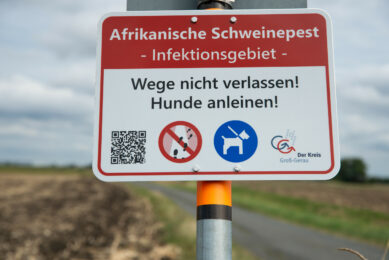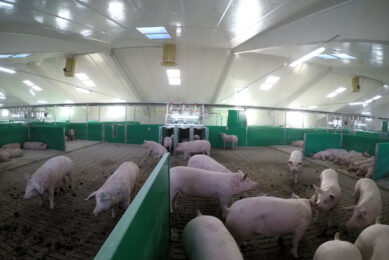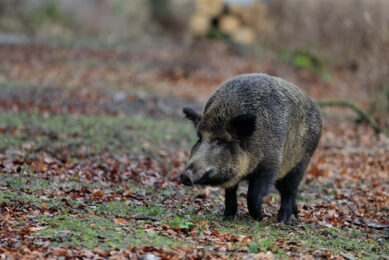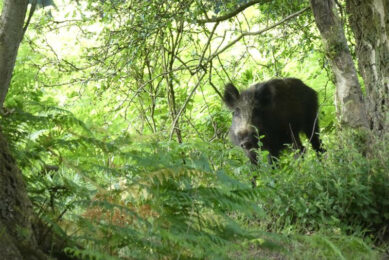Designing an African Swine Fever vaccine

Work lead by Dr Fernando Rodriguez, IRTA researcher at CReSA (IRTA-Universidad Autónoma de Barcelona), demonstrates the feasibility of designing a safe and efficient vaccine against African Swine Fever virus (ASFV) in the near future. Currently, there is no vaccine available to fight ASF.
Dr Rodriguez’s team has confirmed the presence of multiple potential vaccine candidates, larger than previously thought. Specifically identifying them will allow developing safe and efficient subunit vaccines in the future. Protection correlated with the induction of specific CD8 T-cells capable to efficiently eliminate the intracellular virus, where antibodies can’t reach.
Efficient and safe vaccine against ASFV
“This work opens the door to the possibility of obtaining an efficient and safe vaccine against ASFV in the near future,” Dr Rodriguez says. Identifying as many protective antigens as possible between those proteins codified by ASFV (more than 150), will allow designing an optimal vaccine formulation. It is just a matter of time, investment and willingness.”
IRTA researchers have been able to demonstrate that DNA immunisation with ASFV-gene libraries (complex mixtures of DNA plasmids encoding different fragments of the ASFV genome) improves the protection conferred by DNA vaccines encoding one or few immunodominant antigens. In order to achieve this protection, the gene library was specifically designed to induce optimal CD8 T-cell responses.
Dr Rodriguez states that, “We have built an expression gene library containing more than 4,000 individual plasmid clones, each one encoding a different fragment of the ASFV genome (a double stranded DNA with around 170,000 Kb in length). Three individual experiments performed in CReSA and in ANSES (France), demonstrated that at least, 50% of the pigs vaccinated with the gene library survived ASFV-lethal challenge. In all cases, protection correlated with the presence of large numbers of ASFV-specific CD8 T-cells and with the absence of specific antibodies at the time of ASFV-challenge.
This work has been possible thanks to the collaboration established between IRTA, the Centro de Biología Molecular Severo Ochoa (CBMSO) from Madrid (Spain), and the Agence Nationale de Sécurité Sanitaire de l’Alimentation, de l’Environnement, et du Travail (ANSES) from Ploufragan (France). These results have been published in the prestigious Journal of Virology: Lacasta A, Ballester M, Monteagudo PL, Rodríguez JM, Salas ML, Accensi F, Pina-Pedrero S, Bensaid A, Argilaguet J, López-Soria S, Hutet E, Le Potier MF, Rodríguez F. Expression library immunization can confer protection against African swine fever virus lethal challenge. J Virol. 2014 Sep 10. pii: JVI.01893-14.
ASF is a highly transmissible hemorrhagic swine disease that provokes dramatic consequences in the affected countries. ASF is endemic in Sub-Saharan countries and since 2007, when the virus (ASFV) re-entered continental Europe through Georgia, menace the EU countries (in 2014 four EU countries declared ASFV-outbreaks) and indirectly to all the EU commercial allies. The fact that there is no vaccine available against ASF complicates even more ASFV control and/or eradication, today based in the early and efficient ASF-diagnosis and the massive culling of infected and in-contact animals. Developing a vaccine against ASF has become a complicated task due to the lack of knowledge about the mechanisms involved in protection against this disease and the viral antigens that could be involved in such protection.











